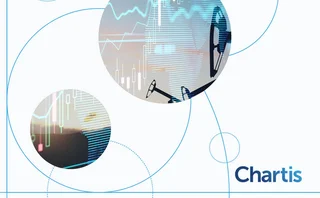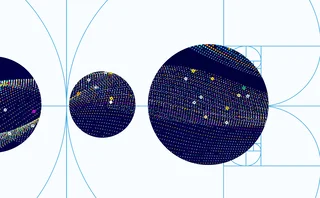
ICE launches Middle East sour crude contract
IntercontinentalExchange will go head-to-head with the Dubai Mercantile Exchange (DME) by launching a sour crude futures contract based on Middle East production.
The ICE Middle East Sour Crude futures contract will begin trading electronically on ICE Futures, ICE’s energy futures subsidiary, on May 21, pending UK regulatory approval.
The ICE contract is cash-settled against the Platts Dubai physical cash price assessment, and will be in direct competition with the Dubai Mercantile Exchange’s (DME) physically-delivered contract, now due to be launched on June 1.
While the DME has not responded directly to the launch of the ICE Futures contract, it has argued in the past that the physically-delivered nature of its contract will allow it to succeed where previous cash-settled contracts have failed.
But Paul Wightman, head of oil futures for ICE Futures, claims that the decision to take the cash-settled route was based on customers’ preferences, and points out that the Platts price on which the contract is settled is itself physically-derived.
Both exchanges are hoping to succeed where several previous efforts have failed. ICE’s forerunner, the International Petroleum Exchange, launched an unsuccessful sour crude contract in the early 1990s. But according to Wightman, conditions are now more suitable for the introduction of a sour crude contract.
“There is now a very successful electronic trading environment,” he explains, “we have a global marketplace, whereas before markets were more regional.”
He rejects that notion that a successful sour crude contract might detract from liquidity in Brent trading, describing the new contract as “an extra tool”.
The success of ICE Futures’ WTI contract, launched last February, has also put the exchange in a better position to launch a sour crude contract, says Wightman. Exchange users will now be able to trade Brent, WTI and Middle East sour crude together on the same platform. The spreads between Brent, WTI and the Middle East sour crude futures contract will also be available immediately.
The Middle East is one of the world’s largest crude oil production regions with several key OPEC members based in the region. Approximately 70% of total Middle East crude exports are exported to Far Eastern buyers. The Middle East has over 60% of the world’s proven oil reserves.
The ICE Middle East Sour Crude futures contract will trade continuously for 22 hours a day – from 01:00 to 23:00 local London time (BST), or from 08:00 through 06:00 (following day) local Singapore time (GMT + 8 hours). Daily contract settlement will take place at 19:30 local London time with final settlement upon expiration at 09:30 local London time (BST) (16:30 local Singapore time, GMT + 8 hours).
Only users who have a paid subscription or are part of a corporate subscription are able to print or copy content.
To access these options, along with all other subscription benefits, please contact info@risk.net or view our subscription options here: http://subscriptions.risk.net/subscribe
You are currently unable to print this content. Please contact info@risk.net to find out more.
You are currently unable to copy this content. Please contact info@risk.net to find out more.
Copyright Infopro Digital Limited. All rights reserved.
As outlined in our terms and conditions, https://www.infopro-digital.com/terms-and-conditions/subscriptions/ (point 2.4), printing is limited to a single copy.
If you would like to purchase additional rights please email info@risk.net
Copyright Infopro Digital Limited. All rights reserved.
You may share this content using our article tools. As outlined in our terms and conditions, https://www.infopro-digital.com/terms-and-conditions/subscriptions/ (clause 2.4), an Authorised User may only make one copy of the materials for their own personal use. You must also comply with the restrictions in clause 2.5.
If you would like to purchase additional rights please email info@risk.net
More on Energy
ETRM systems 2024: market update and vendor landscape
This Chartis report evaluates energy trading and risk management systems that provide front-to-back, asset class-specific and geography-specific coverage, and considers the full energy trade lifecycle
CTRM systems 2024: market update and vendor landscape
A Chartis report on commodity trading and risk management systems that considers its different applications and addresses the market and vendor dynamics to determine the long-term and structural impacts of the overarching market evolution on the…
Energy Risk Commodity Rankings 2024: markets buffeted by geopolitics and economic woes
Winners of the 2024 Commodity Rankings steeled clients to navigate competing forces
Chartis Energy50
The latest iteration of Chartis’ Energy50 ranking
Energy trade surveillance solutions 2023: market and vendor landscape
The market for energy trading surveillance solutions, though small, is expanding as specialist vendors emerge, catering to diverse geographies and market specifics. These vendors, which originate from various sectors, contribute further to the market’s…
Achieving net zero with carbon offsets: best practices and what to avoid
A survey by Risk.net and ION Commodities found that firms are wary of using carbon offsets in their net-zero strategies. While this is understandable, given the reputational risk of many offset projects, it is likely to be extremely difficult and more…
Chartis Energy50 2023
The latest iteration of Chartis' Energy50 2023 ranking and report considers the key issues in today’s energy space, and assesses the vendors operating within it
ION Commodities: spotlight on risk management trends
Energy Risk Software Rankings and awards winner’s interview: ION Commodities







